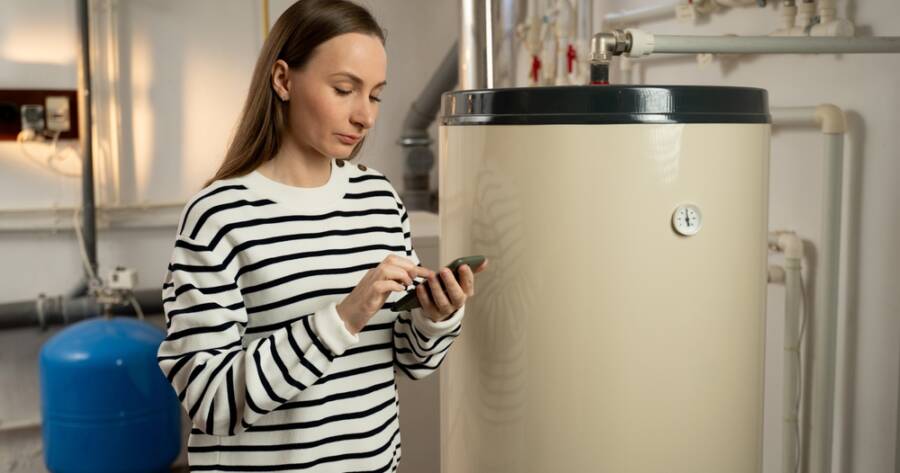Facing an unexpected hot water heater failure can be frustrating and inconvenient. Whether it’s early morning or late at night, finding yourself with cold water can disrupt your day. Rapid response is key to minimizing damage and restoring comfort. Understanding how to handle emergency hot water heater repair situations can empower you to act swiftly and potentially prevent further problems. Explore tips and strategies for addressing common hot water heater emergencies and unlock effective solutions.
Initial Steps When a Hot Water Heater Fails
When your hot water heater stops working, the first step is to assess the situation calmly. Identify any signs of obvious issues, such as leaking water, unusual noises, or complete loss of hot water. Safely turn off the power supply to the heater to prevent hazards, using the circuit breaker for electric heaters or the shut-off valve for gas heaters.
Checking the water heater’s thermostat settings could reveal simple issues. Sometimes, a misconfigured thermostat can be adjusted to restore function. If you notice a leak, act quickly to shut off the water supply to minimize potential damage. These steps can help stabilize the situation while you arrange for further inspection or repair.
Identifying Common Hot Water Heater Problems
Several common problems may cause hot water heater failures. Leaks, often due to a faulty pressure relief valve or corroded tank, can lead to significant water damage. No hot water might indicate an issue with the heating element or a problem with the pilot light in gas units.
Other common issues include unusual noises, which might suggest sediment build-up, or fluctuating water temperatures, often resulting from a malfunctioning thermostat. Identifying these problems can guide you towards the appropriate response, whether a DIY fix or professional assistance. Being aware of these signs helps prioritize steps to restore your hot water supply efficiently.
Assessing When to Call a Professional
While some minor issues might be addressable with basic DIY skills, many hot water heater problems require professional expertise. If you’re uncertain about the nature of the issue or safety is a concern, it’s wise to contact a certified plumber. Professionals have the experience and tools to diagnose and repair faults quickly.
Severe leaks, unusual smells, persistent noises, or electrical issues should generally be handled by experts. Attempting complex repairs without the necessary skills could lead to further damage or safety risks. Knowing when to call a professional can prevent escalation of problems and ensure your hot water heater is restored safely and effectively.
DIY Fixes for Minor Hot Water Heater Issues
For minor issues, there are several DIY solutions homeowners might consider. Sediment build-up can be addressed by flushing the tank. This involves draining the heater and refilling it, a process that can improve efficiency and longevity. For electric units, checking and replacing faulty heating elements might restore hot water supply.
Resetting the thermostat is another common action, potentially resolving issues with inconsistent water temperatures. Tools and supplies for basic repairs are typically found in home improvement stores. However, always prioritize safety, and if a task seems beyond your skill level, professional help should be sought to avoid accidents or further complications.
Preventative Measures to Avoid Future Emergencies
Preventative maintenance can reduce the likelihood of hot water heater failures. Regular inspections of your heater’s components can help identify wear and tear before it leads to emergencies. Checking the anode rod helps prevent rusting, while inspecting the pressure relief valve ensures it’s functioning properly.
Scheduled flushing of your water heater tank twice a year can prevent sediment accumulation, which may otherwise cause problems like noise or inefficiency. Setting your thermostat to a moderate and stable temperature might prevent overheating and extend the life of heater components. These simple practices contribute to a more reliable hot water heater system.
Ensuring Safety During Repairs
During any repair or troubleshooting process, safety should be the top priority. Always begin by turning off electricity or gas to the water heater to avoid potential shocks or leaks. Secure the area by clearing away water or debris to prevent slip hazards.
If your hot water heater uses gas, be vigilant for any smell of gas, and ventilate the area immediately if detected. In such cases, contacting emergency services can be necessary before any repair work begins. Prioritizing safety helps protect both yourself and your home during the repair process.
Learn More Today
Dealing with emergency hot water heater repairs can be daunting, but understanding key steps and solutions might ease the process. By swiftly assessing problems, applying appropriate DIY fixes, or calling a professional when needed, you can address issues effectively.
Implementing regular maintenance could further minimize future emergencies, keeping your hot water system running smoothly. For more guidance, consider consulting with certified professionals or reviewing resources from reputable home maintenance organizations. With preparation and knowledge, you’ll be better equipped to handle hot water heater challenges confidently and efficiently.





